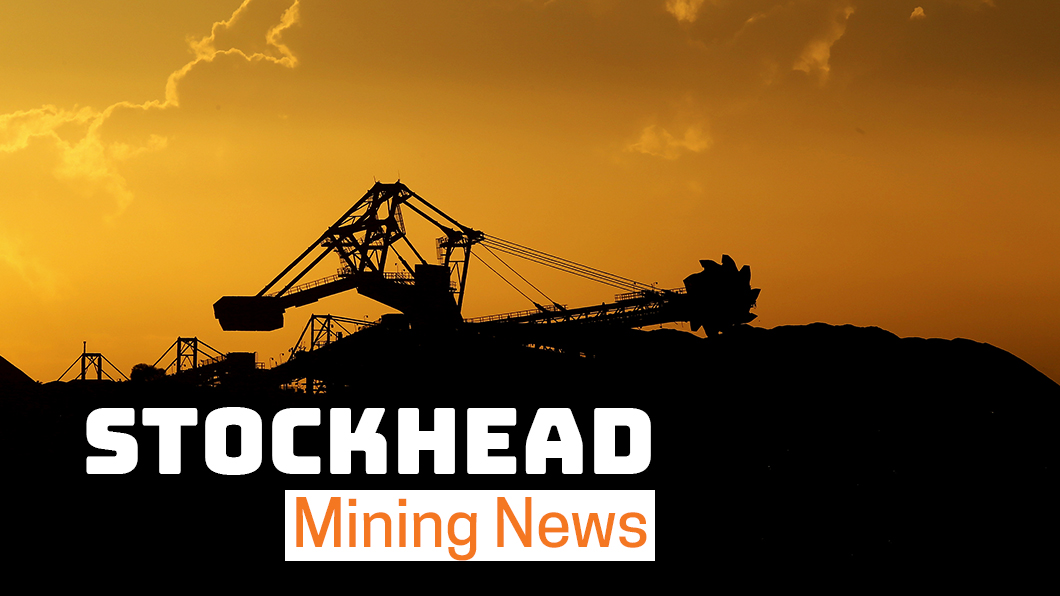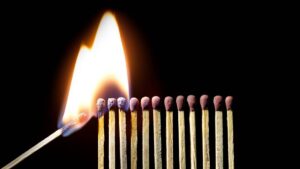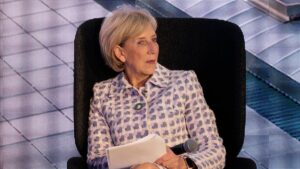Ground Breakers: Analysts like the look of Iluka’s rare earths gambit and Rio says ‘nyet’ to Russian alumina sales

Pic: Bloomberg Creative / Bloomberg Creative Photos via Getty Images
- Mineral Sands producer Iluka Resources steps in rare earths after announcing an FID on a $1.2b refinery this week
- Macquarie and Goldman Sachs have upped their price targets on Iluka to $14; up 8% and 12% respectively
- Rio Tinto has cut off ties with Russia’s Rusal for now by claiming full control of the 80-20 owned QAL and its Gladstone alumina refinery
Iluka Resources (ASX:ILU) is stepping from a familiar landscape as one of the world’s premier suppliers of mineral sands into a new domain in rare earths.
But the big investment banks have taken a liking to the shift in strategy after the announcement that a major government loan will bankroll its new Eneabba refinery in WA, the first rare earths separation plant to operate on Australian shores.
The plant will also process third party feed eventually for other customers, but with construction to start in 2022 and production in 2025, the $1.2 billion project will enable Iluka to extract full value out of its Eneabba monazite resource.
It’s regarded as the highest grade source of rare earths globally.
The whole thing will be funded with a $1.05 billion non-recourse loan from the Australian Government’s critical minerals fund along with a $200 million overrun facility on a 16 year term and attractive 3% rate, $200m in equity from Iluka and backed by its $1.27 billion Eneabba stockpile.
With a risk sharing arrangement in place, Iluka will also get a royalty flow of $81m in cash flow a year up to $900 million, ranking in equal priority to repayments.
The announcement has seen $5 billion capped Iluka’s share price hit around record levels this week, but should be treated with a note of caution.
This is an entirely new development for Australia and the largest rare earths producer outside China, ASX-listed Lynas Rare Earths (ASX:LYC) is still to pay a dividend almost a decade after entering production at its Mt Weld mine and Malaysian processing plant after struggling through a downturn in rare earths prices.
While rare earths prices are fetching levels unforeseen a couple years ago, they have recently suffered some turbulence, with NdPr oxide prices quoted by the Shanghai Metals Market coming down from around US$175/kg at the end of February to US$142/kg on Thursday.
That said analysts are bullish on the latest development from Iluka, led by Goldman Sachs and Macquarie.
Iluka worth $14
GS and Macquarie are in agreement they think Iluka, currently up 2% today to $12.34 a share is worth $14, with GS ramping up its price target by 12% on the news the FID had been made on the rare earths plant on Monday.
Analysts Paul Young and Hugh Nicolaci say a lift in average total rare earths oxide price forecasts from US$20 to US$25/kg, an increased multiple from 6x EV to 7x EV to match the value the market is placing on its rare earths peers and rising prices for zircon and titanium dioxide feedstock mineral sands are all behind the lift.
Macquarie, which rates Iluka as one of its key sector picks has increased its price target by 8%, despite the decision to stockpile rare earths rich monazite from its stage 2 expansion for the stage 3 refinery being a short term hit to earnings.
“Incorporating Eneabba stage 3 has mixed changes to our earnings forecast, with EPS decreasing by 8-14% in CY22-24 as assumed stage 2 monazite sales are now stockpiles; and increases by 11-16% from CY25 onward as the refinery commences production,” Mac said.
“Our price target increases 8% to A$14.00 on a lift in the value of Eneabba. Movements in rare earths, zircon and rutile prices present the most significant risk to our earnings forecasts and valuation.”
Iluka Resources (ASX:ILU) share price today:
Alumina to Russia? Rio says ‘nyet’
Rio Tinto (ASX:RIO) has ended weeks of speculation over its Gladstone Alumina Refinery in Queensland by taking full control of the business it shares in an 80-20 JV with Russia’s Rusal.
Rusal is yet to face official sanctions from the Australian Government, but significant shareholders and Putin-linked oligarchs Oleg Deripaska and Viktor Vekselberg (who hold their Rusal stakes through large shareholdings in investment companies) have.
Rio has faced pressure to end its business relationships with Russian entities, saying it would stop a couple weeks ago.
A ban on exports of alumina and bauxite to Russia by the Australian Government made the situation even testier.
It prompted Rio to bring in so-called “step in” provisions introduced into contracts over the Queensland Alumina Limited company after sanctions against Rusal in 2018 caused issues running operations and critical maintenance at the Gladstone refinery.
“As a result of the Australian Government’s sanction measures, Rio Tinto has taken on 100% of the capacity and governance of Queensland Alumina Limited (QAL) until further notice. QAL is 80% owned by Rio Tinto and 20% owned by Rusal,” a Rio spokesperson said.
“Our focus remains on ensuring the continued safe operation of QAL, as a significant employer and contributor to the local Gladstone and Queensland economies.”
QAL is a toll treatment operation, where Rio and Rusal are paid in alumina which they use in their downstream aluminium smelters. With Rio taking full operational control it will get access to all the alumina from the refinery.
Rusal recently received a shipment of bauxite from Guinea, its first in over a month, as the Russian company looks to avoid a significant hit to its aluminium feedstocks from the Aussie export ban and the closure of its Nikolaev alumina plant in Ukraine.
Rio Tinto (ASX:RIO) share price today:
Related Topics

UNLOCK INSIGHTS
Discover the untold stories of emerging ASX stocks.
Daily news and expert analysis, it's free to subscribe.
By proceeding, you confirm you understand that we handle personal information in accordance with our Privacy Policy.








